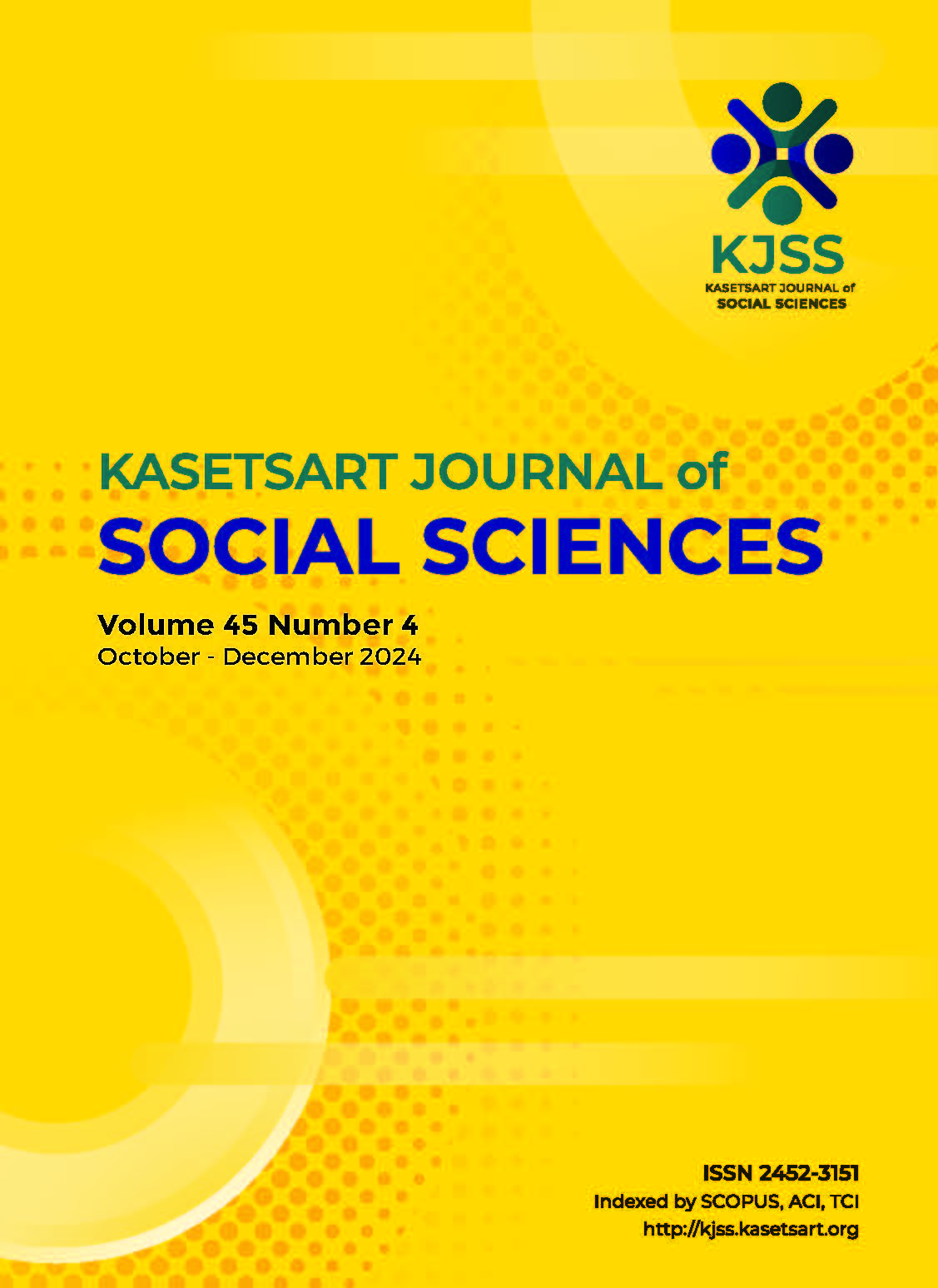Development of an academic management model to promote service-learning in Chahom Wittaya School, Lampang Province, Thailand
Keywords:
academic management model, evaluation, instruction, measurement, service learningAbstract
The research aimed to develop an academic administration model to promote service- learning of Chahom Witthaya School, Chahom District, Lampang Province. This participatory method research was divided into three steps: the first step, focus group discussion with 13 experts and stakeholders in validating the draft of an academic administration model to promote service-learning; the second step, validating the appropriate assessing and feasibility for the academic administration model, 20 experts and stakeholders were invited for validation; and the third step, the academic administration model implementation with a targeted group of 54 participants, including 36 students, 6 teachers, 4 school administrators, and 8 community leaders and representatives. The data analysis forms, reflective thinking forms, suitability and feasibility assessments, and questionnaires were used in collecting the data, then analyzed by using quantitative analysis; descriptive statistics such as mean and standard deviation, while using content analysis for qualitative analysis. The research findings revealed that the overall model indicated the highest level of appropriateness and feasibility. This development led to the “Proactive Academic Management Model to Promote Service Learning” (PAM Model) focusing on four principles: (1) the principle of applying the curriculum based on social service learning focusing on engaging students’ learning activities both in the classroom and in the community, (2) the principle of systematic teaching, (3) the principle of diverse methods in assessing and evaluating student performance, and (4) the principle of the involvement and collaboration between schools and communities, aiming to build strong and effective connections and partnerships.
Downloads
Published
How to Cite
Issue
Section
License
Copyright (c) 2024 Kasetsart UniversityThis is an open access article under the CC BY-NC-ND license http://creativecommons.org/licenses/by-nc-nd/4.0/










